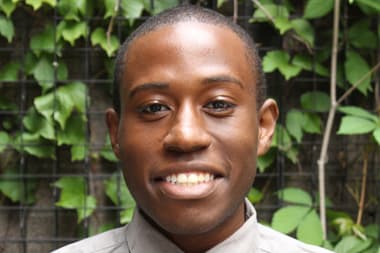NBC News on Friday announced the lineups of Democratic presidential candidates who are appearing on stage this month on each night of the first debate of the 2020 race.
The first group of 10 appearing on Wednesday, June 26:
- Sen. Cory Booker of New Jersey
- Sen. Elizabeth Warren of Massachusetts
- Former Rep. Beto O’Rourke of Texas
- Sen. Amy Klobuchar of Minnesota
- Former Rep. John Delaney of Maryland
- Rep. Tulsi Gabbard of Hawaii
- Former Housing Secretary Julián Castro
- Rep. Tim Ryan of Ohio
- New York City Mayor Bill de Blasio
- Washington Gov. Jay Inslee
The second group of 10 appearing on Thursday, June 27:
- Sen. Bernie Sanders of Vermont
- Sen. Kamala Harris of California
- Former Vice President Joe Biden
- Mayor Pete Buttigieg of South Bend, Indiana
- Sen. Michael Bennet of Colorado
- Author Marianne Williamson
- Rep. Eric Swalwell of California
- Sen. Kirsten Gillibrand of New York
- Entrepreneur Andrew Yang
- Gov. John Hickenlooper of Colorado.
Where the candidates will stand on stage each night has not yet been determined.
To decide the matchups, candidates’ names were drawn manually at NBC News’ headquarters at 30 Rockefeller Plaza in New York. One representative from each of the qualifying campaigns was invited to attend the draw along with officials from the Democratic National Committee. Campaign representatives saw the paper slip with their respective candidate’s name on it before it was folded and placed inside the box.
A representative from NBC News Standards & Practices conducted the draw.
Candidates were divided into two groups: those who polled on average at or above 2 percent through midnight on Wednesday, June 12, and those who polled on average below 2 percent through midnight on Wednesday.
A random draw then took place, to create two separate groupings of 10.
NBC News then designated each grouping to a specific debate night.
DNC chairman Tom Perez told MSNBC’s Hallie Jackson on Friday before the draw that he wanted the committee to avoid grouping lesser-known candidates together on one night and high-profile candidates on the other.
“The purpose of that is to be consistent with our principle of trying to be fair to everybody but also, it gets to the point of your question, so that we have maximum eyeballs both nights,” Perez said.
The determination of the lineups came a day after the DNC announced the 20 candidates who met the threshold to appear on stage for the two-night event. The debate, hosted by NBC News, MSNBC and Telemundo, will take place on June 26 and 27 at the Adrienne Arsht Center for the Performing Arts in downtown Miami.
After the matchups were announced, candidates who qualified for the debate celebrated on social media and elsewhere, with some hoping for the chance to differentiate themselves to voters.
Gillibrand, for instance, lagged in the polls and struggled up until recently to meet the debate’s individual donor threshold. She released a statement Friday touting her record as President Donald Trump’s “kryptonite.”
“President Trump’s kryptonite is a strong, independent woman who speaks her mind, takes on tough fights for families and women, and has a record of actually getting things done, and that’s exactly what they’ll see from me on the debate stage,” she said. “The debates are the first chance for voters across the country to tune in and compare the ideas of the contenders, and I’m honored to have the opportunity.”
She also told NBC News that the night she’s on “actually doesn’t matter to me, I really admire and enjoy all my colleagues.”
Delaney said in a tweet that he’s looking to spar with his fellow Democrats, particularly Warren, on issues and not “personality.”
“I am pleased to be sharing the debate stage with many strong candidates, particularly Senator Warren who, like me, is talking about new ideas,” he tweeted from his official Twitter account. “I look forward to a debate on issues and solutions, not personality and politics.”
The historically large field of candidates includes a slew of U.S. senators, a handful of mayors, a former vice president, longtime legislators and some political novices.
The DNC set two ways for candidates to qualify for the debate — fundraising and polling. To make the stage, candidates needed to have either at least 1 percent support in three qualifying polls, or provide evidence of at least 65,000 unique donors, with a minimum of 200 different donors in at least 20 states.
The debate will air live across NBC, MSNBC and Telemundo from 9 p.m. to 11 p.m ET both nights. The debate will also stream online free on NBC News’ digital platforms, including NBCNews.com, MSNBC.com, the NBC News Mobile App and OTT apps, in addition to Telemundo’s digital platforms.
NBC News’ Lester Holt, Savannah Guthrie and Chuck Todd, MSNBC’s Rachel Maddow and Telemundo’s José Diaz-Balart will moderate the debate.












